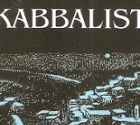
By Kathryn Jacobi
Paperback. 354 pages. Published by Amazon, 2012. Available also on Kindle (to be found on Amazon.com) $14.99. Kindle $11.99.
Reviewed by Barbara Abraham
And why have I given my review of Kathryn Jacobi’s novel Upside–Down Coffee this title? After meeting with Kathryn, learning of her background and then reading the novel, I came to the conclusion that the contents introduce, especially to readers abroad, life in Israel as it is. How it can impress and influence immigrants – born and educated abroad – who decide to become part of Israeli society and how the emotions, challenges and hardships of a different way of life and the people they meet can affect them and change perspectives for those with whom they come in contact as well as for themselves.
Kathryn is by profession a psychologist, educated in America, married to an Israeli who influenced her to make aliyah - and so she did, coming to build a new life with their two young children in 1995. Her years of professional practice built a desire to express her inner self through writing fiction, and with the unfolding of the story, express the richness of experiences she has uncovered and which are part of life in Israel. And so she did, thus bringing her inner feelings and her experiences to life throughout the pages of Upside-Down Coffee. She admits it was a long but very fulfilling journey in which she succeeds in painting a vibrant picture of the challenges faced daily in Israel’s complex reality, as such a wide mix of people from across the world strive to become “one people”. Added to this reality there is the problem of the Arab communities who also have to face the social problems they deal with as a minority within this modern reality.
These problems are covered in a descriptive and interesting way throughout the pages of the novel, and the title of the book opens the question in the reader’s mind – why “Upside-Down Coffee”? Well, the Hebrew café hafuch is the favorite drink of Ruth and her three ex-American friends when they have their weekly get-togethers in one of the local cafeterias of the picturesque town of Zichron Yaacov. The problems they have to confront are put on the table together with the coffee, and advice and support are given, and in this way the author tells the story and meets the other two main characters. The time setting is the Second Lebanese War and this background also brings to life the fears and tragedies faced by families whose sons are out there fighting in the army and facing death.
Yelena and Samira – a Russian and an Arab - are bought into the story; Yelena, a traumatized Russian immigrant fleeing from the rockets in Kiryat Shmona, and Samira, Ruth’s pedantic Arab house-cleaner from Fureidis, whose intelligent grasp and understanding of her people’s problems brings changes into both her thinking and that of Ruth’s. The main characters are brought into contact with one another, using the background of the effect the war has on those living through troubled and shocking periods, in an interesting and effective manner because of Kathryn’s deep understanding of the incidental psychology.
The novel draws the reader into the story as each page is turned and is to be recommended particularly to newcomers and friends and family abroad.
Footnote: Kathryn Jacobi has offered to speak to ESRA members and especially to new residents in the country on the subject of “Coping with Stress”. She can be contacted at 054 667 2549.
 ESRA Golf Competition 2012
ESRA Golf Competition 2012 If I could tell you - a review
If I could tell you - a review Made in Israel-The Jerusalem Review
Made in Israel-The Jerusalem Review Robert Kwong at the Yeshiva
Robert Kwong at the Yeshiva  Friday Night with the Pope - A Book Review
Friday Night with the Pope - A Book Review The Kabbalist - A Book Review
The Kabbalist - A Book Review  Barbara Abraham
Barbara Abraham